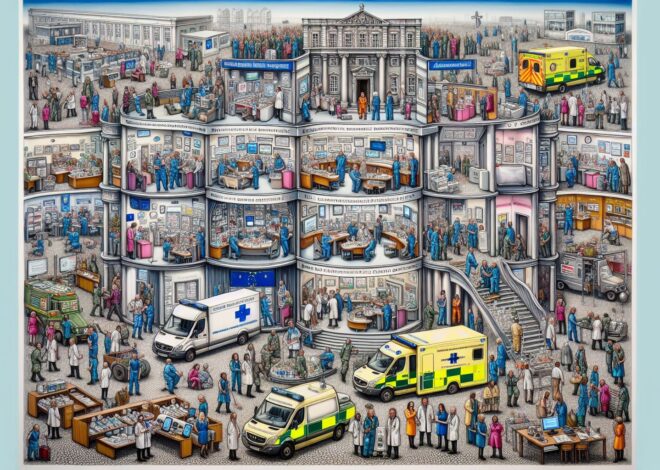
The Preparedness and Response of European Health Systems
In recent years, the world has faced unprecedented challenges in the form of global health crises, such as the COVID-19 pandemic. European health systems have been at the forefront of battling these crises, showcasing their ability to adapt, innovate, and respond to rapidly changing circumstances. In this article, we will delve into the preparedness and response of European health systems, addressing health professionals, policymakers, and concerned citizens.
Preparedness:
Preparedness is the cornerstone of an effective health system. European countries have invested heavily in healthcare infrastructure, training of healthcare professionals, and medical research to ensure they are ready to respond to any health threat that may arise. Many European countries have robust public health systems that focus on prevention, early detection, and rapid response to outbreaks.
For example, the European Centre for Disease Prevention and Control (ECDC) plays a crucial role in monitoring, assessing, and communicating emerging threats to public health. The ECDC works closely with national public health agencies to coordinate responses to health emergencies and ensure a cohesive approach across Europe.
Additionally, European health systems have made significant advancements in digital health technologies, telemedicine, and remote monitoring, which have proven invaluable during the COVID-19 pandemic. These technologies have enabled healthcare professionals to provide care to patients while minimizing the risk of transmission and ensuring continuity of services.
Response:
The response of European health systems to health emergencies has been swift, coordinated, and effective. During the COVID-19 pandemic, European countries implemented various measures to control the spread of the virus, protect vulnerable populations, and support healthcare systems under strain.
Health professionals across Europe have worked tirelessly on the frontlines, treating patients, conducting research, and developing innovative solutions to combat the virus. Healthcare workers have shown immense dedication, resilience, and adaptability in the face of unprecedented challenges.
Policymakers have played a crucial role in shaping the response to the pandemic, implementing public health measures, allocating resources, and coordinating efforts at the national and European levels. Collaboration between countries has been key to sharing best practices, coordinating responses, and ensuring a united front against the virus.
The Way Forward:
As we look towards the future, it is essential for European health systems to continue investing in preparedness, strengthening healthcare infrastructures, and learning from past experiences to improve responses to future health threats. Health professionals must remain vigilant, adaptable, and committed to providing quality care to all patients.
Policymakers should focus on building resilience, enhancing coordination, and fostering innovation within health systems to better respond to emerging health challenges. Public engagement and education are also crucial in building trust, promoting adherence to public health measures, and empowering individuals to take control of their own health.
In conclusion, the preparedness and response of European health systems have been commendable in the face of global health crises. By building on their strengths, learning from past experiences, and fostering collaboration, European countries can continue to protect the health and well-being of their populations in the years to come. Let us all work together towards a healthier and more resilient future for all.



